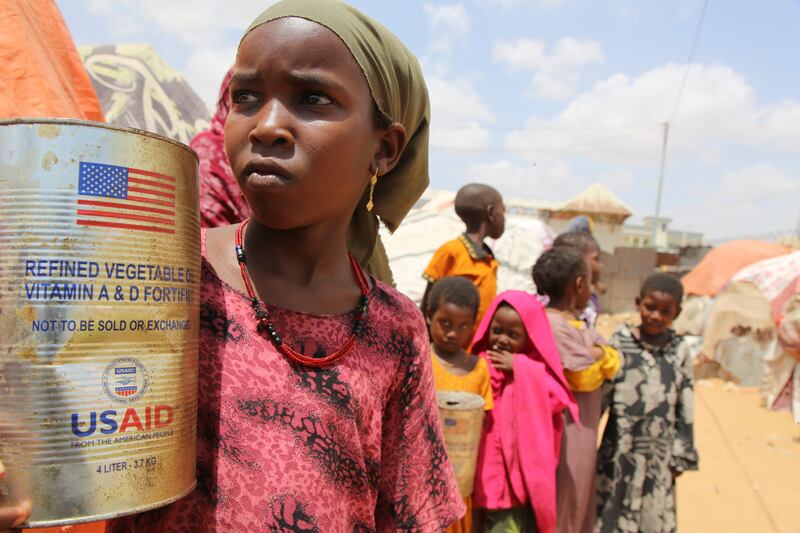In recent months, many American leaders have questioned the value of U.S. foreign aid. My decades of service in the military taught me that foreign assistance and diplomacy are, in fact, profoundly important.
Let’s start with the obvious: International aid saves lives. Whether it goes to humanitarian operations in Ukraine, malnourished children in Ethiopia or projects stopping the spread of deadly diseases, international aid can mean the difference between life and death for vulnerable people worldwide.
However, that reasoning alone doesn’t tell the whole story of international aid. Foreign aid is not philanthropy, nor is it wasteful spending on handouts. Done correctly, it is a well-planned and executed element of national power that complements other efforts in support of a broader strategy.
I served in the military for 28 years. During my tenure, I saw firsthand how international engagement and assistance complement military might to protect American interests abroad.
Providing foreign assistance and diplomacy helps address the root causes of global conflict and instability. And it does so using around just 1% of the federal budget.
Extremism thrives in environments plagued by poverty, instability or a general lack of resources. Economic development and global health programs can strengthen societies, helping to stop the cycle of violent extremism and preventing deadly conflicts before they occur. Enhancing stability in these areas is critical for the global community because it contributes to regional security and economic development.
In the long term, this helps us avoid deploying American troops to conflict areas abroad. It saves service members’ lives and taxpayer dollars. War is always more expensive than diplomacy, in terms of human capital and money.
Here in the U.S., we are lucky to have shared values such as democracy, liberty and freedom of religion. We cannot take these rights for granted. American leadership is essential to create a world in which American values are respected and protected.
Our enemies stand ready to undermine these values and increase their power should America vacate its position as global leader.
Authoritarian countries like China and Russia are already using economic coercion and diplomacy to expand their influence and gain advantage over the West.
Russia continues to push the boundaries of its power, as demonstrated by its unprovoked invasion of Ukraine and military strikes against Ukraine’s civilians.
Since the invasion, Ukraine has become the biggest recipient of U.S. foreign aid funds, which provide humanitarian aid to civilians and help society function during wartime.
My organization, August Mission, has helped provide vital resources to civilians who have been harmed by the Russian invasion. We have delivered supplies to medical facilities, orphanages, shelters and more.
Through this work, I have been grateful to speak to many Ukrainians about Russia’s lawless war, and I’ve had the opportunity to visit Ukraine many times to see the situation on the ground. I can tell you firsthand that we deliver more than critical aid; we deliver hope. The Americans are here and they believe in our cause. I cannot tell you how many times I have heard this sentiment. I hate to think what the loss of humanitarian aid and the hope that we bring will mean for these innocent people.
Russia’s war on Ukraine is an attack on freedom and democracy at large. We cannot stand idly by and allow it to happen. Ignoring this attack on democracy is counter to the core values we believe every human being should be free to pursue — life, liberty and the pursuit of happiness.
The U.S. must continue to safeguard our country against the foreign adversaries plotting our demise. To do so, we must utilize every resource at our disposal, including strategic diplomacy and foreign aid. During these times, we have to ask ourselves hard questions: Do we believe in American exceptionalism? Is it our duty to step forward and lead as a democratic superpower? If we do, we must accept the costs associated with the burden of leadership. If we choose not to, the alternatives are frightening.
At the end of the day, foreign assistance saves lives both at home and abroad. By continuing to supply smart foreign aid to countries in need, we can protect American values and security for decades to come.

